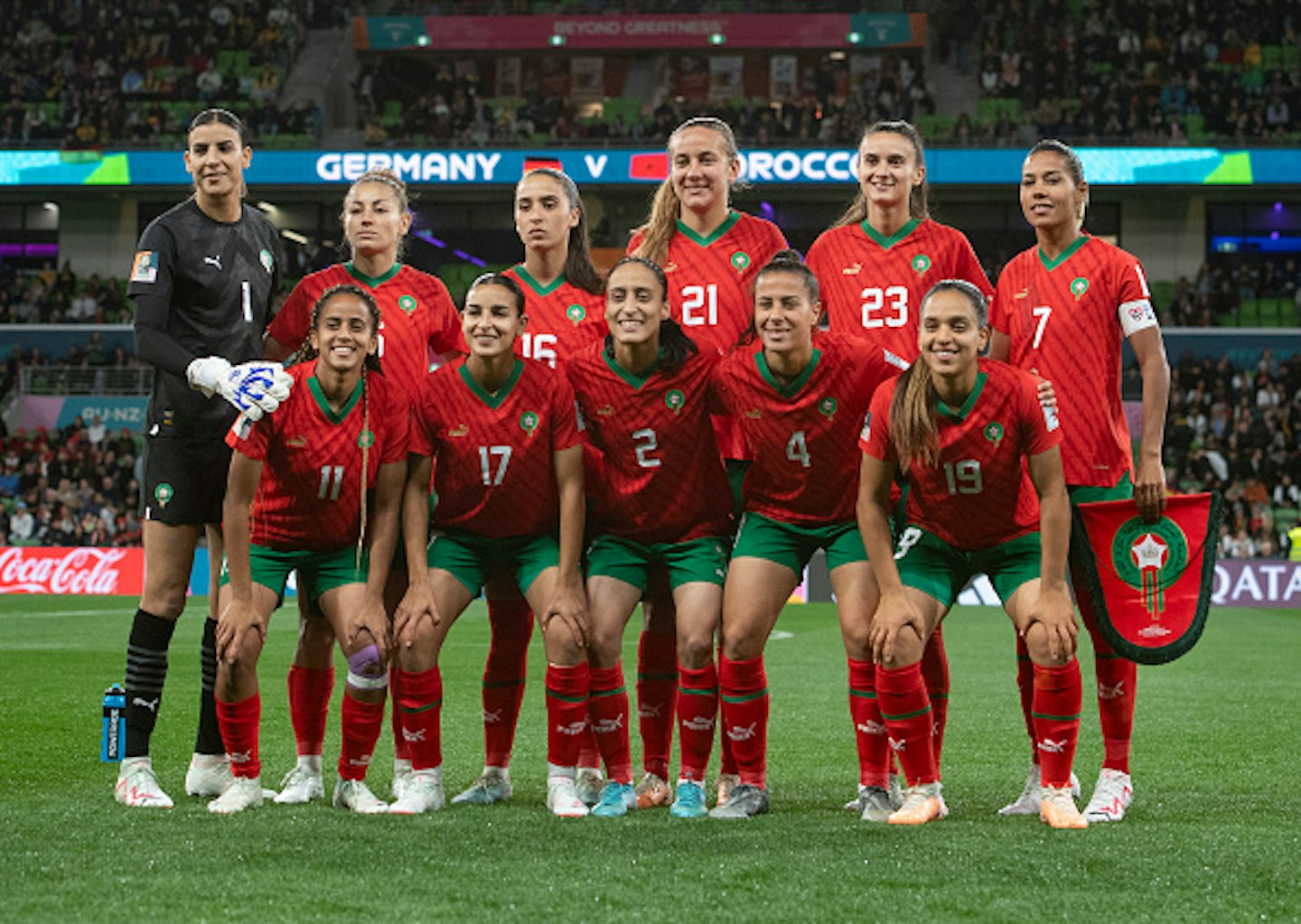Like with many experiences when it comes to living in the patriarchy, it feels like we’ve taken one step forward and two steps back – this time in a case of how female footballers are treated.
2022 was a standout year for women's football – after the Euros, viewing figures hit an all-time high, with attendance also spiking. After so many years of relative obscurity, we got to see women thrive and succeed as they played the game.
But, as the Women’s World Cup gets into full swing, Morocco’s team captain was asked a question that indicates how much further we have to go when it comes to equality and, you know, not sexualising women at every opportunity.
The BBC has apologised for the ‘inappropriate question’ put to Ghizlane Chebbak, after the reporter asked: ‘In Morocco, it’s illegal to have a gay relationship. Do you have any gay players in your squad and what’s life like for them in Morocco?’
A press conference moderator pointed out at the time that the question was ‘political’ and the focus should be on football. The broadcaster has since said in a statement that it ‘had no intention to cause any harm or distress’, seeing as same-sex relationships for both men and women are illegal in Morocco, with homosexuality punishable by up to three years in prison.
These criticisms are, of course, completely and utterly valid. But questions should not be imposed that target or endanger any player, and it’s certainly not the time and place to attempt to out any female footballers against their will.

The whole situation exposes another key problem, too. Why did this reporter feel justified in asking a woman about her (and her team’s) sexuality, her relationship status, her private life? We rarely hear of a male footballer being asked this question. While the BBC broadcaster’s apology covers the ways in which the question was ‘inappropriate’ in terms of endangerment or distress, it doesn’t cover how the question highlights a double standard between male and female footballers, and a rather upsetting sexualisation of women.
We know that homophobia in men’s football is a big issue – a conversation that came back to the fore during the World Cup in Qatar last year, seeing as same-sex sexual activity is prohibited in the host country. A 2022 study found that homophobia made up 40% of abuse aimed at male footballers, with female footballers receiving 27%.
At time of writing, there are three relatively high-profile global male footballers who are ‘out’ – the subject remains pretty taboo and at the discretion of each player to discuss. So why did it feel fair game to ask a female footballer about the sexuality of the women players in her team?
Female footballers don't owe anyone answers about their sexuality, in the same way that male footballers don't either. Our bodies and romantic lives are not any more up for discussion than a man’s, even if the patriarchy will have some people thinking otherwise.
